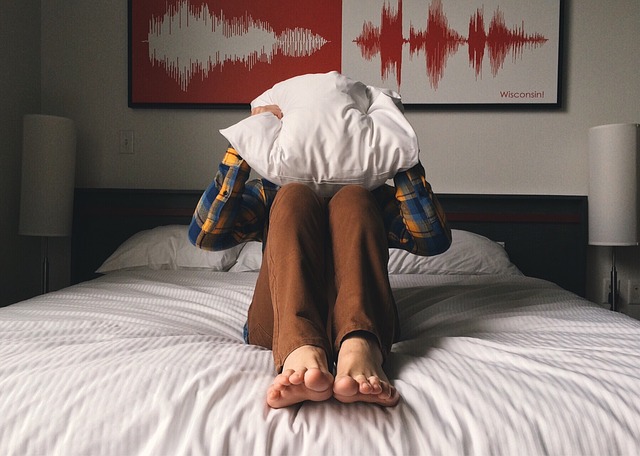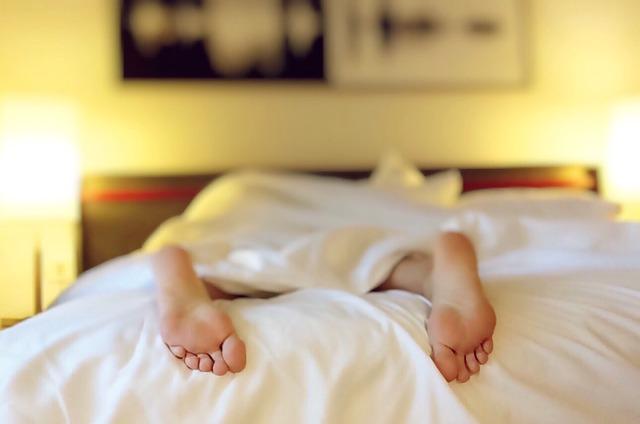Posts Tagged ‘sleep’
Using Your Pillows Strategically to Find Better Sleep
Sleeping begins with comfort
Who can really fall sleep with their knees touching and their legs stuck together? Who is ready to dream with their head sinking lower into a lumpy pillow? The first ingredient of any successful sleep strategy is comfort- comfort leads to calm, and calm leads to relaxation. This is an important transition: calmness is a working state of perfect harmony between your mental, physical and emotional states; relaxation, on the other hand, allows your body to reduce its expenditure of energy and focus on getting to sleep.One of the best ways you can get comfortable tonight is by using your pillows to better effect. Paying attention to your pillow(s) can make a big difference when it comes to falling and staying asleep; strategically positioning pillows can help you support healthy sleeping posture, promote better circulation, and prevent back pain.
Posture while…Sleeping?
What is your personal sleep posture? Spread eagle, stomach down? Fetal position? Do you move a lot when you sleep, or stay still as a rock? Few people can answer these questions with total clarity because by nature, sleep is an unconscious activity. But some sleep positions are superior to others, and we do have the power to influence how we fall asleep. We generally choose whatever feels most comfortable, which is fine for those of us who sleep on our sides or back, but sleeping on the stomach can be incredibly damaging to the spine. Here are some postural considerations while sleeping:
The primary goal for any sleepers should be to keep their spine as close to natural alignment as possible.
The stomach-down position should therefore be avoided, but if you must sleep this way, use a pillow underneath the stomach to avoid letting the curve of your back collapse into the bed. Furthermore, the position that the stomach sleeper’s head usually takes during sleep puts a lot of pressure on the muscles of the neck and the shoulders.
Sleeping on your back is one of the best positions, but it can put pressure on the lower back. You can defeat this condition by putting a pillow under the knees that gently lifts them and alleviates pressure from the lower spine. Make sure you are using a pillow that keeps your head straight in relation to the spine.
When sleeping on the side, bend your knees in a loose approximation of the fetal position to avoid pressure accumulating to the lower back. As with the sleeping on your back, pillow usage is crucial: you don’t want a pillow that encourages the neck to angle up or down to aggressively.
Changing the way you sleep is a challenging proposition: it requires peeling back years of repetitive behavior and a lot of patience, but the upside is tremendous. We would like to see people waking up refreshed and pain free. At Holmes Chiropractic, we have the knowledge to help you institute changes that will lead to a restful night’s sleep.
Call our office in Houston at (713) 862-2440
Headaches and Sleeping
For many people, getting to sleep, or staying asleep is difficult because of headaches and, by the opposite token, lack of sleep creates headaches during the day time. Sleep is a key ingredient to overall wellness, and as such, the pursuit of restful, restorative sleep is a primary pursuit at Holmes Chiropractic. How can you begin to function for a day when your restorative hours were racked by headache and stress? It sets a tone for your life that becomes hard to manage.
As we see it, nerves exiting from the cervical spine are involved in regulating the limbic system, which is responsible for mood. A nerve interference at this level could cause fluctuations in happiness, and lead to stress, anxiety and depression. Furthermore, a nerve that is being pressed by a misaligned vertebrae could be causing pain that is referring to your head. As muscle spasms begin to accrue in the shoulders and neck, the problem becomes muddled. It is not unbelievable that a cervical subluxation could be causing your headaches that stop you from sleeping. And it is proven that not sleeping causes headaches, whether from anxiety or exhaustion.
At our office in Houston, we believe that together we can make positive impacts on your sleep health. We take everything into consideration: sleep hygiene, nutrition, ergonomics and posture, as well as chiropractic considerations that treat the spine to ensure your nerves are functioning properly. Call our office to schedule an appointment today and start sleeping right to reduce headaches.
Dr. Randall Holmes, D.C.
Sleeping with Good Form
If only sleeping was simple. In a globalized world where stress seems to grow by the day, sleep is becoming harder to come by: falling asleep and staying asleep are problems entirely of their own, but what is happening while you sleep? The position your body is in can determine whether you wake up feeling refreshed or refracted, rested and rewarded or wrinkled and restless. Today, a topic that is hard to control, but has large lasting ramifications on your body: sleep posture.
- Sleep posture is usually determined by what feels most comfortable: for back and side sleepers, this is OK, but for stomach sleepers this is unfortunate. Have you ever heard that sleeping on your stomach is bad for you? Unfortunately, it’s true. Besides making an impact on snoring and some sleep apnea cases, belly-down is no boon for healthy sleeping. As you sleep, the natural curve of the spine is flattening. If this is the only way you can fall asleep, put a pillow under your lower abdomen to fight the flattening effect.
- Back sleepers: This is the best position for your body to sleep as the back, neck and head remain in alignment. Sleep ergonomics come into play here however: sleeping with a pillow that cricks your neck up or down can leave you stiff and out of sorts in the morning and a bed that does not sag in the middle is important.
- Side sleepers: you are in the majority. This is the most comfortable position for people to fall asleep and wake up and it is not necessarily damaging. A downside of sleeping on the side is the amount of weight that is put on the shoulders and inferior arm. Believe it or not, the side you usually sleeps on has an impact on your health. For example, sleeping on the right side can contribute to heartburn while sleeping on the left side can put pressure on organs like the liver and lungs.
Sleeping is far from simple. But there are minor adjustments you can make to your sleep set up that will help you reap the most benefit out of your restive period. Call our office in Houston at 713-862-2440 to schedule an appointment.
Dr. Randall Holmes, D.C.
Nutrition for Sleeping
Sleep deficiencies are often correlated with poor diet patterns.
For example, eating too little during the day leads to eating too much at night. Conversely, eating too much during the day may leave your stomach growling as you attempt to sleep. The paradox exists: It is hard to digest a heavy meal while lying in bed, but sleeping is difficult on an empty stomach. Space out your meals so that a balanced level of nutrition is flowing into the body throughout the day.
Reduce sugar/caffeine and alcohol. Sugar especially leaves your brain at the mercy of blood sugar swings that make you hungry, which is not what you want when trying to sleep. Alcohol and restful sleep is a cocktail that was never meant to be: while a healthy buzz may induce sleep, it disrupts REM sleep, leaving you drowsy the next day.
Clean fats and proteins are good things to eat at night because your body will have a stable flow of energy that does not bend to the whim of blood sugar. Protein helps your muscles and immune system repair during deep sleep.
Before bed: something soothing
- A cup of warmmilk for vitamin b and tryptophan effects
- 6 oz of hot water and a teaspoon of honey
- A cup of chamomile tea.
Do not sabotage your sleep by eating poorly. Call our office in Houston at 713-862-2440 to schedule an appointment and find out how we can use nutrition to get you a better night’s sleep.
Dr. Randall Holmes, D.C.
Sleep Apnea and Chiropractic
Sleep apnea (apnea meaning lack of breathing) is a common disorder characterized by shallow breath patterns and pauses during sleep. There is often an associated snort or choking sound that precipitates a resumption of normal breathing.
To the casual observer, it may appear as though someone suffering from sleep apnea is holding their breath, withholding oxygen intake until they finally have to gasp for air. From a chiropractic perspective, the presence of sleep apnea points to nerves that communicate with the diaphragm, the primary muscle involved in breathing. These nerves exit from the mid-cervical spine, and if a subluxation is allowed to press down on them, mechanical functioning of the diaphragm can be impeded. Sleep apnea sufferers often find improvements after chiropractic adjustment to this region.
Consider the anatomical picture of this condition: as you approach deep sleep, the brain sends signals to the muscles telling them to relax. The tissues surrounding the throat sag into your airways, restricting the amount of room for air to flow, meaning less oxygen in the blood. If your diaphragm is also malfunctioning, this will compound the problem by not allowing you to breathe sufficiently. Eventually your body produces an emergency response, the snort, which prevents you from fully relaxing unto deep sleep.
At Holmes Chiropractic, we believe that sleep apnea can be impacted positively through natural means as opposed to prescription medication. We focus on correcting subluxation in the spine, thereby improving the function of your chest muscles. All of our treatments will help your airways to acquire the proper amount of oxygen and nutrition they need to provide you with healthy, deep sleep.
Call our office in Houston at 713-862-2440 to schedule an appointment today.
Dr. Randall Holmes, D.C.
Restless Sleep
Successful sleep means falling and staying asleep and, while asleep, deriving the restorative benefits that sleep has to offer: a productive period of rest and recovery that boosts everything from physical and mental fitness to well-being and mood.
When we treat people who are suffering from sleep problems, it is easy to diagnose a systemic pattern of external and internal causatives that have led to their sleepless condition. So we begin with the basics: a conversation to determine what kind of life you lead and how it may impact your sleeping ability.
Here is a standard daily itinerary that precipitates a sleepless night:
- Wake up from a restless night with a stiff neck.
- Preparation for a busy day begins with coffee, your morning stimulant.
- Blaze through a day of work, balancing the ups and downs, exerting your brain and accumulating stress.
- Eating is a secondary consideration to work, so your body does not receive anything close to the full nutrition it needs.
- A couple of hours of television before bed keeps the brain buzzing and active.
- Falling asleep on an ill-fitting pillow, perpetuating the neck pain.
As you can see, restless sleep is viciously cyclical. If your life involves even one of the factors mentioned above, it could be perpetuating a pattern of sleeplessness that is harming your quality of life. If you are trapped in this cycle, do not despair: better sleep is possible.
From a chiropractic angle, the upper neck region is the most coalescent with the sleep center of the brain. Keeping this region free of subluxation allows the nervous system to contribute to a healthy night’s sleep. We offer lifestyle counseling to help you identify counterproductive activities and reduce stress.
Call our office in Houston at 713-862-2440 to schedule an appointment today.
Dr. Randall Holmes, D.C.
In Pursuit of a Good Night’s Sleep
At Holmes Chiropractic we believe that sleep is integral to immunity.
A good night’s sleep is priceless: the influence of sleep on mood, attitude, cognition and health is something you have to feel to believe. Unfortunately for many, they don’t know what they have until it’s gone: lack of sleep is a leading contributor to stress and depression, symptoms that are all too real. Lack of sleep can also leave weaken your biological systems and contribute to elevated stress levels. Adult insomnia, the condition whereby people find it difficult to fall or stay asleep, is on the rise, and although there are many sleep medications on the market, most only treat the symptoms and not the cause.
To this end, we pledge to dive deep to derive the underlying cause of your sleeplessness. Sometimes, all it takes is a conversation to discover that unhealthy habits are obstructing your sleep patterns. We help you to institute healthy practices that reduce stress such as monitoring and limiting caffeine, alcohol and tobacco intake, increasing exercise and creating routines that give your brain a semblance of order.
If back pain is making it impossible to find a comfortable position to fall asleep in, we diagnose and correct the cause of the pain through adjustment and massage.
Massage also helps to increase blood flow and heal injuries, and reduce muscle tension that may have accrued due to stress or poor posture.
For sufferers of insomnia in the Houston area, we offer a composite strategy for wellness. Call us today at 713-862-2440 to schedule an appointment.
Dr. Randall Holmes, D.C.



